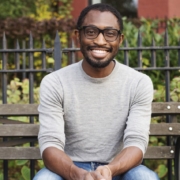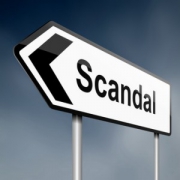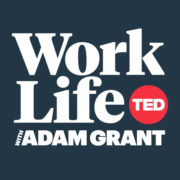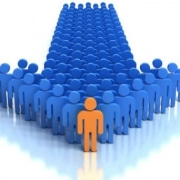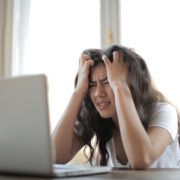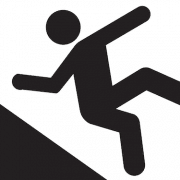The Difference Ethical Leadership Can Make in a Pandemic
The human costs of the COVID-19 pandemic are hard to grasp and accept. Thousands have died and continue to die, while tens of millions have been forced to file for unemployment. There is something grotesque in the claims that the cure is worse than the illness, but those claims expose a hard truth: The dilemma between physical and economic well-being means different things to different people, and in the absence of effective leadership and a strong ethical frame, it will continue to do so.

Put another way, without ethics in the equation, we may be looking at the choices to manage the COVID-19 crisis through a keyhole rather than from the top of the mountain. As more and more people start placing greater emphasis on economic well-being, the preeminent value of physical well-being gets fuzzier. For example, in Georgia and other Southern states, as non-essential businesses start reopening, the focus is likely to shift from the costs of staying open to the costs of staying closed. This may lead more business owners to feel pressured to reopen their businesses despite the objective health-related risks this decision may pose to themselves, their employees, and their customers.
Since the personal costs of social isolation also depend on the behavior of others, the growing clamors to reopen the economy create a twofold risk. On the one hand, a rushed reopening may lead to new contagion; on the other, it may blunt the progress that has already been made toward mitigation. Not only can more people get sick, but many others—especially, lower-risk groups like the young—may start reevaluating whether it makes sense to sacrifice themselves in the absence of a shared strategy toward controlling the spread.
Self-sacrifice becomes less of a hard choice when everybody does his/her part. In the presence of a genuinely shared effort, not only are the costs of isolation more fairly spread, but it’s easier to appreciate that one’s personal interest is aligned with everyone else’s. Furthermore, if people consistently cooperate and shelter-in-place, progress toward mitigation is more likely to unfold in a steady and linear fashion, potentially creating a positive-feedback loop for all to see.
Ultimately, whether people cooperate or not has more to do with how they weigh the costs and benefits of cooperation than the objective value of those costs and benefits. Uncertainty—such as the uncertainty of whether one’s personal sacrifices truly matter—may lead people to view cooperation as a more costly choice, but trust may increase its value. Similarly, if the choice to cooperate is framed in terms of what one can gain—such as in “stay home to avoid getting sick”—rather than in terms of how every contribution is critical for the common good, people may act more selfishly.
For example, some may start pitting the risk of getting sick against the risk of economic loss and choose to risk infection. In contrast, if people are forced to evaluate whether they bear responsibility for the life of others, they may feel compelled to cooperate. When it comes to these types of dilemmas, cooperation is less likely to manifest if the decisions to be made are framed in business terms rather than in ethical ones.
Leadership breeds leadership, and it can grow, exponentially, into countless acts of selfless patience, care, and discipline.
Asked whether he had anything to say to the protesters who claimed that the cure against COVID-19 is worse than the illness, Andrew Cuomo, the Governor of New York, noted that the cure cannot be worse than the illness because the disease is nothing less than a harbinger of death. Pressed further as to what he made of the fact that physical isolation may lead some to suicide, he added that social distancing is not simply meant to protect people from getting sick and dying. It is also intended to prevent them from causing others to die.
The New York governor has done more than give people lofty speech. He has offered the public an ethical frame that encompasses both personal and social responsibility, and he has shown how he himself is trying to live by it. At his daily briefings, the line that “we are in it together” is the constant reprise New Yorkers hear next to the mantra that New York is tough and smart. Not only should everyone remember the mutual responsibility that links them to others (a ‘we’ versus ‘me’ mindset), but nobody should forget that the mental stamina and good judgment they apply to their daily lives are the very resources needed to manage the continued sacrifice this crisis is asking of all.
Cuomo has role-modeled civic duty, shushed away political grandstanding and accepted blame for unpopular decisions, including the choice to apply caution to reopening New York’s economy. Recently, he told the public to blame him, not local officials, for failure to restart one of the biggest economic engines in the country.
People have responded in kind. Not only has Cuomo’s popularity skyrocketed, but New York is one of the few states that has started bending the curve of contagion. Both outcomes could have been predicted easily based on research showing that leadership can operate as a powerful catalyst when people face social dilemmas like the one we face today. Even better, leadership can help transform selfish motives into pro-social ones. In a study in which people had the choice to contribute to a shared investment plan, those who were led by a leader who demonstrated credibility and self-sacrifice were significantly more likely to contribute. Not only did the leader’s sense of duty make a difference overall, it also had a transformative impact on people with more self-oriented goals.
Leaders, via role-modeling and genuine conscientiousness, can help the public reframe the perceived costs associated with cooperation in the name of the social good. They can mitigate people’s fear of missing out, magnify the value of altruistic behavior, and provide a from-the-top-of-the-mountain vision of what is at stake for all, thereby stretching the ethical focus of those who are primarily concerned with their own gains and losses.
Helping everyone to look at things holistically takes both method and empathy. Recently Cuomo, who never fails to reflect on the burden the thousands of deaths COVID-19 has inflicted on New York, read a letter a wife and husband from Kansas, Dennis and Sherry, had sent him. Sherry has diabetes and only one lung, but the couple wanted to make sure frontline personnel in New York got one of the five N-95 masks from Dennis’ workdays as a farmer. “If you could give this mask to one of the doctors or nurses in your city,” wrote Dennis, “I’ve kept four masks for my immediate family.”
Leadership breeds leadership, and it can grow, exponentially, into countless acts of selfless patience, care, and discipline. It is this multitude—this heroism of the many—that will starve the virus and perhaps give us a cure, or at least a decent treatment, before a vaccine is found.
Caterina Bulgarella is a culture architect and a member of Ethical Systems’ core team.
This post was originally published on Forbes and is reprinted with permission.


